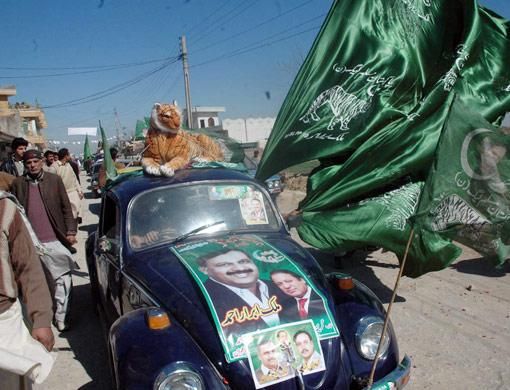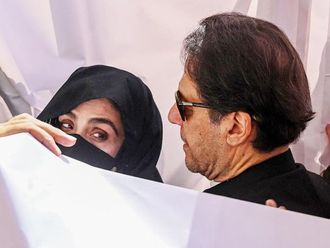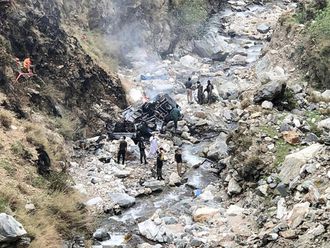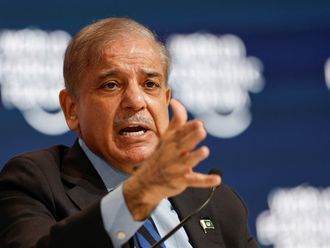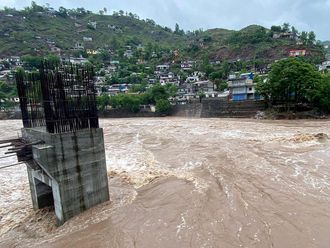Islamabad: Nuclear-armed Pakistan is due to hold an election on Monday that has its neighbours and the West shuddering over what might happen next in a country at risk of being destabilised by Al Qaida.
Here are some of the possible election scenarios, based on assessments of political analysts and foreign diplomats:
The backdrop
Although it is not a presidential vote, US ally President Pervez Musharraf's position could be in danger if the election produces a hostile parliament that could seek his impeachment.
Musharraf, who came to power as army chief in a 1999 coup, secured a second term as president by imposing emergency rule in November for a few weeks in order to purge the Supreme Court of judges who stood in his way.
Opinion polls show most Pakistanis do not believe Musharraf should lead them any longer and, having quit the army to become a civilian president, he is regarded as weaker than ever before.
Musharraf's power
If Musharraf is lucky there will be no clear winner, and no one will be strong enough to unseat him. The one combination that Musharraf dreads would be an alliance between Bhutto's Pakistan Peoples Party (PPP) and the party led by Nawaz Sharif, the prime minister he ousted in 1999.
The other danger for Musharraf during this time is violence. Should the PPP and Sharif's party, variously known as the Pakistan Muslim League (Nawaz) or Nawaz League, say they were cheated by vote-rigging they could call for street protests. It would be a recipe for turmoil. Pakistan hasn't had an election regarded as free and fair since 1970.
PPP in pole position
Riding a sympathy vote, PPP is expected to become the biggest party in the National Assembly and win Sindh province. For PPP to win a majority is probably expecting too much. It had 63 of 342 seats in the last assembly.
Some analysts reckon it will win closer to 130 this time. Neither Bhutto's husband Asif Ali Zardari nor her 19-year-old son Bilawal Bhutto Zardari, who inherited joint chairmanship of the PPP with his father, are prime ministerial candidates.
That role is expected to be filled by the party's deputy chairman, Makhdoom Amin Fahim, an unimposing personality that rivals could regard as the most acceptable choice in a coalition.
Sharif's position
Sharif is barred from contesting the election and his party is expected to be the main victim of any rigging, having rebuffed feelers Musharraf is said to have put out for a reconciliation.
Restoration of judges who would have barred Musharraf's second term is a central plank of the Nawaz League's campaign.
Having only returned from exile in December, Sharif will use the elections to re-establish his base, and position himself for next time. If Musharraf were removed, it could lead to a reunification of the PML sundered by the 1999 coup.


